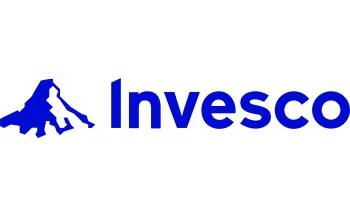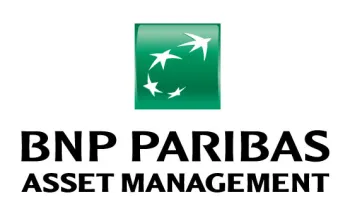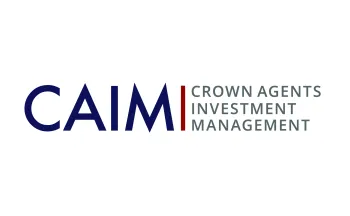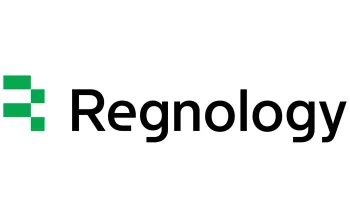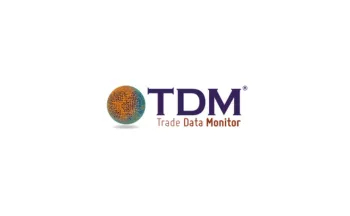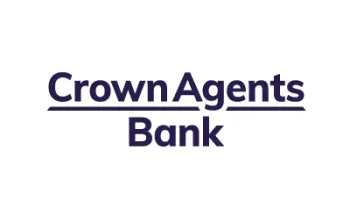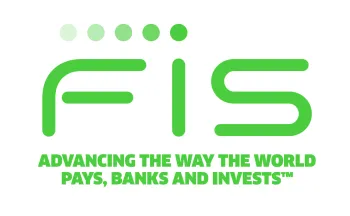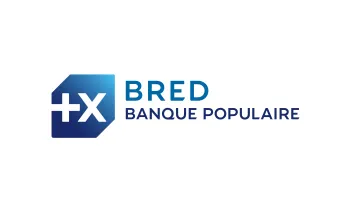Central Banking Autumn Meetings
Central Banking Autumn Meetings 2024 will bring together central bankers from across the globe to tackle the key issues in reserve management, innovation, research and policy.

Central Banking Autumn Meetings
Thank you to all attendees who joined us in Mexico City, details of our 2025 event will be released shortly
2024 keynotes included
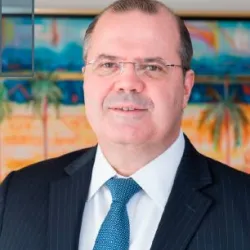
Alexandre Tombini
Chief representative for the Americas
BIS
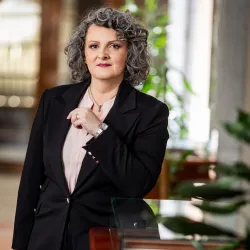
Jasmina Selimović
Governor
Central Bank of Bosnia and Herzegovina
Jasmina Selimović, Ph.D. was appointed at the position of CBBH Governor on January, 2024. The newly appointed Governor, who is also the Presiding of the CBBH Governing Board, has a doctorate in economic sciences.
Since 2004, she has been employed at the School of Economics and Business in Sarajevo, at the Department of Finance and the Department of Quantitative Economics. She completed her postgraduate studies at the School of Economics and Business in Sarajevo, in Business Economics, with Actuarial and Insurance, major course. She prepared her doctoral dissertation in the field of actuarial science in the USA, and defended it at the School of Economicas and Business, University in Sarajevo. As a full professor, she teaches courses in the fields of Finance, Quantitative Economics and Actuarial Science at the School of Economics and Business in Sarajevo.
In addition to being involved in the teaching process, she performed the duties of Deputy Head of the Department of Finance, Vice Dean for Teaching and International Cooperation, and in 2018 she was elected to the position of Dean of the School. In 2022, she renewed her four-year mandate.
She is a member of numerous professional associations in the country and abroad. She is active in the world organizations for accreditation of business schools and universities (AACSB and EFMD), and she is engaged as an international expert for accreditation at quality assurance agencies in EU countries.
She is the author and co-author of several books and chapters in monographs, numerous scientific and professional articles, published in internationally indexed magazines. She participated in many international and domestic conferences and projects.
From 2011 to 2015, she was a member of the Advisory Group of the Fiscal Council of Bosnia and Herzegovina. Since 2018, she was an independent member of the Supervisory Board of Raiffeisen Bank BiH.
By the decision of the Presidency of Bosnia and Herzegovina, she was appointed as a member of the Governing Board of the Central Bank of Bosnia and Herzegovina, for a mandate period of six years, starting on January 3, 2024.
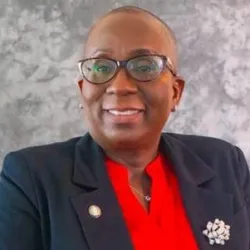
Valda Henry
Deputy governor
Eastern Caribbean Central Bank
Valda Frederica Henry is the Deputy Governor of the Eastern Caribbean Central Bank. She is VF Inc.’s former Chief Executive Officer and Principal Trainer. She formerly served as a Senior Investment Officer at the Eastern Caribbean Central Bank and played an instrumental role in the restructuring of the Investment Unit and the development of the Investment Management Framework of the Bank. She has lectured in, among other subjects, Human Resource Management and Accounting and has extensive experience in organisational reviews, job analyses and job descriptions working with companies in the Caribbean and served as the Coordinator of the Administrative Reform Program of the Commonwealth of Dominica. She has served as a Mentor for Executive and Middle Managers in many sectors including banking, hospitality and utility. Valda is also a Global Human Resources and Organizational Development Expert who excels at collaboration, with very strong interpersonal, communications, leadership and decision-making skills. She has developed and led numerous multi-year personal and professional development programs for youth in Dominica as well as individuals and businesses throughout the Caribbean. She hosted a weekly radio and twice- monthly television programs on which she discussed solutions to challenges faced by businesses in the region. She wrote a Column, “Business and Life,” for the online newspaper, “Dominica News Online. Valda holds formal qualifications in Financial Analysis and Planning, Governance and Business Management. She is a Chartered Financial Analyst, holds a PhD in Industrial Relations & Business, Masters of Business Administration, Bachelors in Management and Bachelors in Law. She is a Certified Global Professional in Human Resources, Society for Human Resource Management, Senior Certified Professional (SHRM-SCP) and an Accredited Director. She is also a Certified ProNet Trainer and a Myers Briggs Type Indicator (MBTI) Practitioner and a Certified “Train the Trainer” for InfoDev and the Women Innovators Network in the Caribbean (WINC).

Guillermo Avellán Solines
General manager
Central Bank of Ecuador
Guillermo Avellánobtained his bachelor’s degree in business economics with a minor in finance from the University of Richmond (USA). Mr. Avellán holds a master’s degree in economic analysis from the Barcelona School of Economics (Spain). Finally, he concluded executive programs in macroprudential policies and gold reserves management at Columbia University.
Mr. Avellán started his career as an analyst and advisor of the investment division at the Central Bank of Ecuador. He also worked as a corporate banking analyst at Citi-Ecuador and as a senior analyst on risk management at Banco Bolivariano. In addition, he was a full-time professor of macroeconomics and finance at Espiritu Santo University. He served as research director at the Guayaquil Chamber of Commerce and Ecuador Libre think tank.
Since June 2021, he has been the General Manager of the Central Bank of Ecuador. He also served as President of Ecuador’s Public Debt Committee between June 2021 and August 2022.
2024 tracks
Reserve management
- Evaluating market performance and the macro-economic environment
- Exploring asset allocation strategies and investment horizons
- Analysing global power shifts and their impact on financial markets
Innovation
- Unlocking efficiency in financial systems through innovation in fintech, payments systems, CBDCs and open finance
- Analysing case studies and projects showcasing financial innovation within the Americas
- Exploring AI’s role in revolutionising innovation, regulation, and operations in finance
Research and policy
- Engaging seminars and work-shop discussions based on the latest research and working papers
- Shaping the future of macro policy with insights that support central banks in their pursuit for monetary and financial stability
- Fostering collaboration by bringing together academia, central banks and private institutions
Reasons to attend
Meet central bankers
Connect with peers from across the globe and broaden your network.
Find solutions
Learn how central bankers are tackling current challenges.
Hear from leaders
Gain essential insights from experts in your field of work.
Get ahead of the curve
Hear about the latest innovations being implemented by central banks.
2024 partners
Invesco is an independent investment management firm that helps clients build long-term, strategic partnerships with official institutions, offering the best of its investment expertise and capabilities.
It manages $1.4 trillion in assets on behalf of clients worldwide and offers specialised investment teams across a comprehensive range of asset classes, investment styles and geographies.
Invesco has more than 8,400 employees worldwide and an on-the-ground presence in more than 20 countries, serving clients in more than 120 countries.
About BNP Paribas Asset Management
BNP Paribas Asset Management (‘BNPP AM’) is the investment arm of BNP Paribas, a leading banking group in Europe with international reach. BNPP AM aims to generate long-term sustainable returns for its clients, based on a sustainability-driven approach. BNPP AM’s investment capabilities are focused around six key strategies: High Conviction Strategies, Liquidity Solutions, Emerging Markets, Multi-Assets, Systematic, Quantitative & Index and Private Assets, with investment processes incorporating quantitative and fundamental analysis.
Sustainability is core to BNPP AM’s strategy and investment philosophy. Among the leaders in thematic investment in Europe1, BNPP AM intends to contribute to a successful Energy transition, healthy Ecosystems, and greater Equality in our societies (our “3Es”). BNPP AM currently manages EUR 540 billion of assets (EUR 656 billion of assets under management and advisory) and benefits from the expertise of more than 500 investment professionals and around 400 client servicing specialists, serving individual, corporate and institutional clients in 67 countries.
Source: BNPP AM, as at 31 December 2023
1 Source: 2nd in Europe for active sustainable thematic strategies, according to an analysis made by BNP Paribas Asset Management based on Morningstar data as at 31/12/2022.
CAIM is a UK-regulated specialist investment manager with a particular focus on managing foreign exchange reserves on behalf of central banks globally. We offer directly managed bespoke strategies to each of our institutional clients, in public market fixed income and equities, across developed markets and China. We prioritize our clients, treat them as partners, and seek to become trusted advisors to each institution we work with. We can trace our roots back to 1749, when our predecessor organization was originally established by the British Crown. CAIM has via our predecessor organisation offered financial services to our clients since 1833. We began managing money for the world’s first sovereign wealth funds in the 1960s, and CAIM’s oldest current central bank reserves management account dates to the early 1980s.
Regnology is a leading technology firm on a mission to bring safety and stability to the financial markets. With an exclusive focus on regulatory reporting and more than 35,000 financial institutions, 70 regulators, international organizations, and tax authorities relying on our solutions to process their regulatory reporting data, we’re uniquely positioned to bring greater data quality, efficiency, and cost savings to all market participants. With over 900 employees in 16 offices and a unified data ingestion model powering our work, our clients can quickly implement and derive value from our solutions and easily keep pace with ongoing regulatory changes. Regnology was formed in 2021 when BearingPoint RegTech, a former business unit of BearingPoint Group, joined forces with Vizor Software, a global leader in regulatory and supervisory technology. The company is on a continued organic and external growth path, building up as one of the world's most recognized global regulatory reporting powerhouses.
SecurEyes is a specialized consulting and solution engineering firm focused in risk management, supervisory technology, regulatory technology and cybersecurity advisory services.
With 700+ global customers and 12,500+ consulting engagements, we are the trusted partner of several regulatory bodies, governments, and multinationals across the globe. We have obtained prestigious empanelment’s with reputable entities, as well as numerous prominent certifications.
Our state-of-art product SE-RegTrac is an enterprise supervisory product to digitize supervisory activities for central banks. It integrates supervisory and regulatory technology into a single platform thereby empowering regulators in risk-based supervisory responsibilities and at the same time equipping regulated entities in managing their regulatory responsibilities. It supports multiple sectors including banking, fintech, credit bureau, financing & leasing and insurance companies.
SecurEyes has demonstrated leadership in acquiring global recognition in many areas such as winning the “Technology Services Award 2023” by the Central Banking Awards Committee at the level of central banks worldwide for the year 2023.
Our other products help clients in regulatory compliance management, cyber supply chain risk management and operational risk management.
For detailed information, please visit: www.secureyes.net.
If you wish to contact a member from the SecurEyes team - please contact at riskmanagement@secureyes.net.
Company Description: Trade Data Monitor (TDM) publishes the official import/export trade statistics for 120+ reporting countries for every physical good being traded. The data is available in value, quantity, and average unit value (AUV). The database is updated every day and has the most recent revisions in the industry, so that our clients have the most recent information available. Clients use the data to analyze supply chains, investigate the economic health of each country and the world, identify new export market opportunities or mitigate risk, forecast market trends, and analyze global trade policy and how world events (i.e. climate change, war, global illnesses, labor issues) may impact trade flows.
Foreign Exchange (FX) and cross-border payments are often complex and expensive, especially when operating in hard-to-reach markets.
FIS is the world's largest global provider dedicated to financial technology solutions. FIS empowers the financial world with software, services, consulting and outsourcing solutions focused on retail and institutional banking, payments, asset and wealth management, risk and compliance, trade enablement, transaction processing and record-keeping. FIS’ more than 53,000 worldwide employees are passionate about moving their clients’ businesses forward.
BRED is a cooperative Banque Populaire, a member of BPCE Group, supported by more than 200,000 members, with €6.7bn in shareholders’ equity, and 6,300 employees – including 30% outside France and in the French Overseas Collectivities. It operates in the Greater Paris region, Normandy and in the French Overseas Departments, as well as in Southeast Asia, the South Pacific, the Horn of Africa, Switzerland and Dubai, via its commercial banking subsidiaries.
As a community bank with strong ties in local areas, it has a network of 475 business sites in France. It maintains a long-term relationship with 1.3 million customers.
BRED Banque Populaire operates in various activity sectors: retail banking, corporate banking for large-cap companies and institutional investors, wealth management, international banking, trading, asset management, insurance, international trade financing.
In 2023, BRED reported consolidated NBI of €1.34bn and net income of €319m.
Participating in the Autumn Meetings organized by Central Banking was an enriching experience. The dedication of the team, coupled with the diverse and insightful discussions, as well as central banking representatives, made it a valuable event for both speakers and attendees
Director of the Governor’s Office, National Bank of Angola
Central Banking Meetings is appropriate for dealing with today's problems
National Bank of Slovakia
The Central Banking Meetings are a valuable resource and excellent platform for learning, benchmarking, sharing ideas and networking with subject matter experts
African Bank
I found the wealth of knowledge gained from the various presentations and the different view points of the panelists very valuable
Bank of Jamaica
It was great to connect with people that share our interests and hopefully establish professional relationships, which will be very useful
Czech National Bank
The topics of discussion were very insightful, and [offered insight into] what other central bank reserves managers do – be it, strategies, risk management or governance structures. Networking opportunities for future collaborations were also a highlight
African Bank
The Central Banking Meetings offered a perspective of what [practices are] being followed in other jurisdictions, the issues they face and how they are tackling them
Reserve Bank of India
The Central Banking Autumn Meeting was nothing short of amazing. There were representatives from various central banks across the world and the content was rich. The panellists provided real-life experiences on CBDCs and on Cybersecurity and even if you attended with little knowledge, you left much better equipped to guide your own organizations. The networking and cocktails were simply the icing
Assistant manager, Information and Cybersecurity, The Central Bank of Trinidad and Tobago




